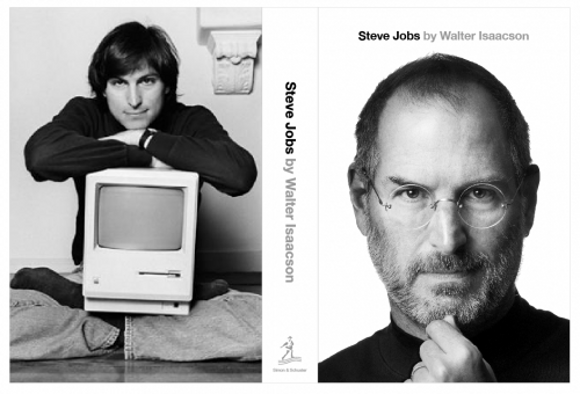As I was reading Walter Isaacson’s excellent biography on Steve Jobs, I was reminded of someone else who had a similar impact on his generation. Henry Ford was another man who left his mark on history through his inventions and innovations. Jobs even compared himself to Ford. Jobs prided himself and Apple in never asking the customer what they wanted but telling the customer what they needed. He qoted Henry Ford as saying, “If I asked the customer what they wanted, they would have just asked for a faster horse.” Both men were visionary leaders. They imagined the future and then created it.
Isaacson is a really good biographer. The challenge when writing a biography is to either vilify or deify the subject. Isaacson was able to do both by painting an accurate picture of a complex man. He said that Jobs cooperated fully with the biography, knowing that he would not like everything that Isaacson wrote. To Jobs credit, “He didn’t seek any control over what I wrote, or even ask to read it in advance.” The book came out of over forty interviews with Jobs over two years and over one hundred interviews with “friends, relatives, competitors, adversaries, and colleagues.” Job’s wife, Laurene did not ask for any control over the book either. She actually encouraged Isaacson to be honest about her husband’s failings along with his strengths.
What emerges is a picture of the man who put the “personal” in personal computing. Jobs’ visionary thinking led to the creation of the first commercially available, successful computer lines with the Apple II. Of course, this would never have been possible without the help of computer engineer extradordianaire, Steve Wozniak. Isaacson discusses Jobs’ and Wozniak’s relationship at length, along with many other close associates.
I got two distinct pictures while reading Steve Jobs. He was a brilliant man. He was not a nice person. As a leader, he was able to get the best out of people and pushed people to levels that they never thought possible. At the same time, he left many other talented but less tough people crushed and broken in his wake. Jobs was known for his legendary temper tantrums and he knew exactly how to manipulate people to get them to do what he wanted. In this, Jobs and Henry Ford were also alike. Ford was known as an autocratic leader known to fire anyone who disagreed with him. Ford even undermined his own son’s leadership after he had taken the reins of the company from his father. Ford said he wanted to toughen the younger man up. Isaacson’s description of the coup that Jobs attempted when he was ousted from Apple was not Steve Jobs best moment.
This is a fascinating book about a fascinating man. It provides the reader with a wonderful picture of one of the icons of our lifetime. Steve Jobs also takes us on a tour behind the scenes at Apple, one of the most innovative companies the world has ever seen. In many ways the man was the company.
If you would like to help us as we prepare to move back to Brazil, here is the link. Obrigado! (Thank you!)

